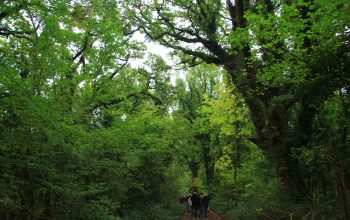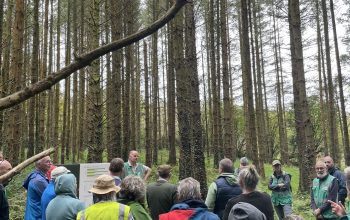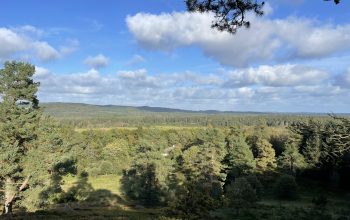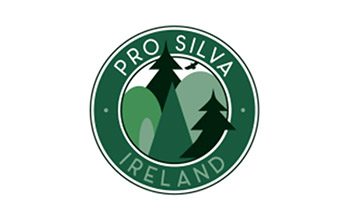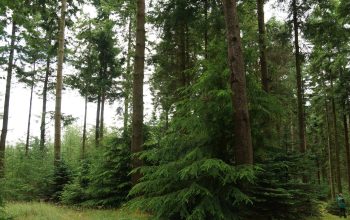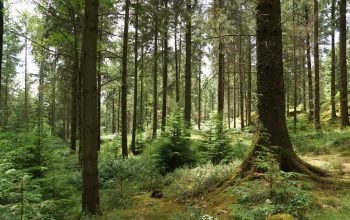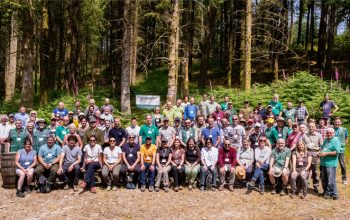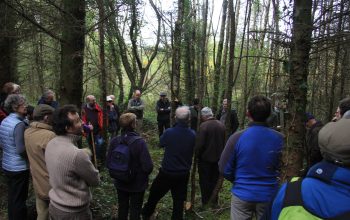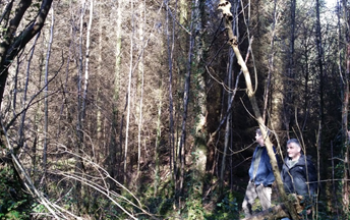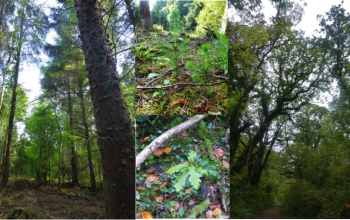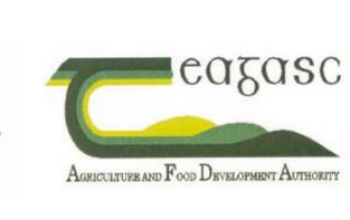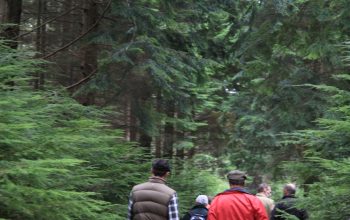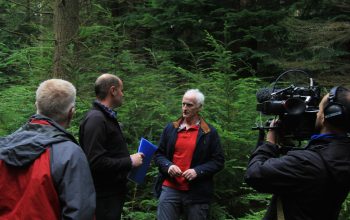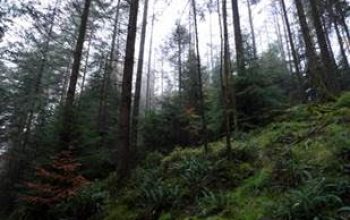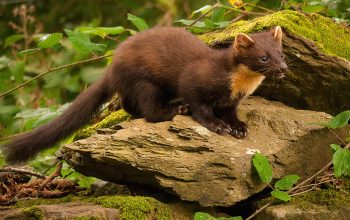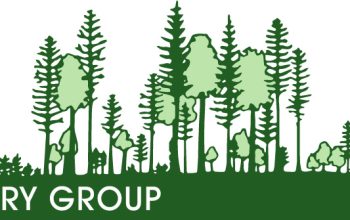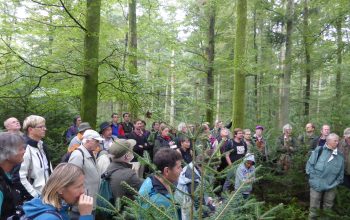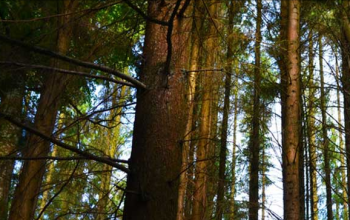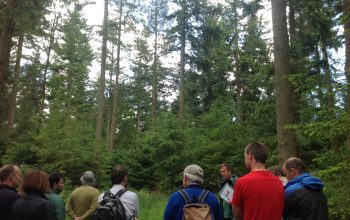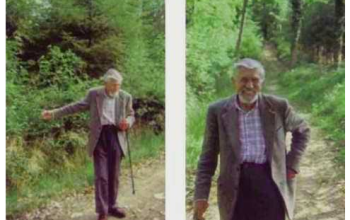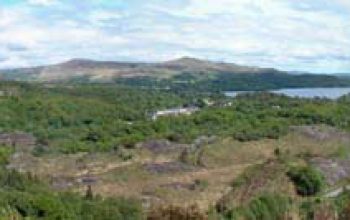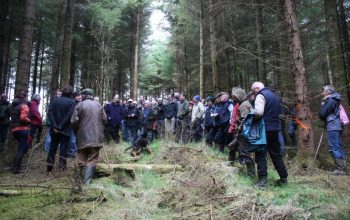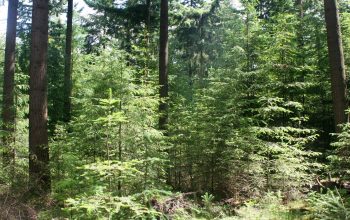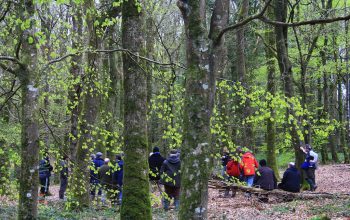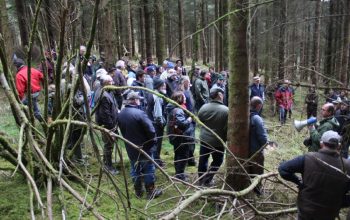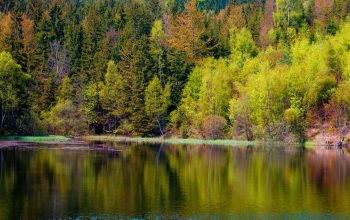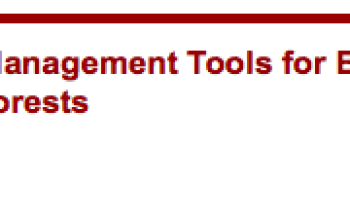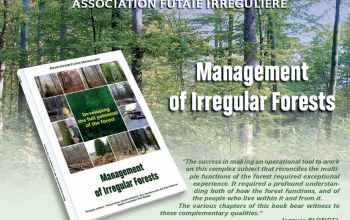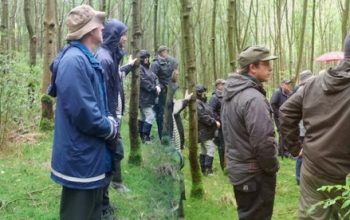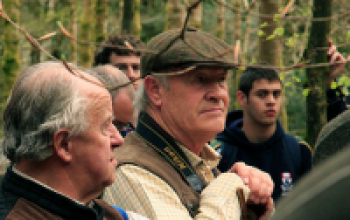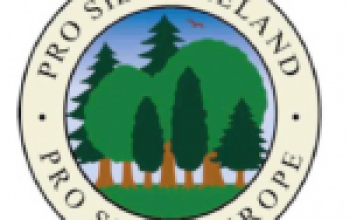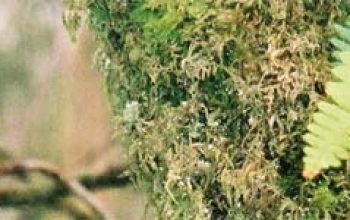- Download a PDF of the talk here: Dr Bednar’s talk
Pro Silva Ireland hosted public talk in UCD on the 25th April on the building of adaptive forests in the era of climate change. Dr Bednar, a researcher for the Forestry and Game Management Research Institute in the Czech Republic, gave a lecture titled:
“Conversion to Continuous Cover Forestry (CCF) as an adaptive forest management strategy within the context of global climate change”.
Czech forest researcher Dr Pavel Bednar spoke about the fact European forests were increasing at risk due to the effects of climate change, in combination with the consequences of historical forest management approaches. Continuous Cover Forestry (CCF) offered an alternative strategy that may become essential to future forest survival.
Dr Bednar at first outlined historical facts and future projections on temperature and precipitation in Central Europe and then put forward the projected consequences for forestry from the extremes in weather that will occur in the future. The more direct effects on forest will be from the extent and severity of periods of drought and how this already presenting itself much earlier than past models had predicted. The total annual amount of precipitation is not changing too much, it is the distribution of precipitation is changing rapidly leading to increase in the extreme events, availability of water during growing season is decreasing and options for vegetation utilizing the water are limited due to extremes. This leads to stress in trees in forest that then become susceptible to Bark Beetle (Ips typographus; Ips duplicatus; Pityogeneschalcographus) attack resulting in up to 66% of annual cut in Czech Republic for 2017 coming from salvage cutting being from abiotic factors. This is a direct result of the serious drought that affected central Europe in 2018 and is a six-fold increase over the last twenty years. He main factor for salvage cutting prior to bark beetle was wind-blow and that factor is also increasing because of more regular extreme wind events.
Pavel Bednar then outlined how Continuous Cover Forestry would mitigate or prevent the large-scale disturbances as just described through promoting the new objectives for forestry Close To Nature forest management.
The requirements and characteristics of this new forest are;
A lower susceptibility for damage in the forest –
In this, Dr Bednar spoke of the necessity of conversion of current trees species distribution within the Czech Republic. For example, Norway spruce currently constitutes 51% of forest cover whereas its natural range in Czech Republic in 11% explaining that trees species, especially outside their natural range, are more susceptible to biotic and abiotic threats when future climate change predictions are taken into account. He also outlined research that demonstrated the rate of spruce trees infested by bark beetle was significantly reduced where there was a mixture of species in the forest. Thirdly, he outlined the effects of drought stress has on the forest structure especially the mono-culture and single-story forest where within the same conditions there are huge differences between tree species and even between different growth stage of the same species. Norway spruce is highly predisposed to drought sensitivity (compared to e.g. Scots pine) and outlined that how to increase the resistance of N spruce to drought was to reduce its transpiration through growing in mixtures and in an irregular structure. Dr Bednar also highlighted research that demonstrated the mitigation of drought stress for Norway spruce through admixture of Beech
Better Economic Performance
Not only an issue of vitality and survival of the forests but demonstrated through research that there is also the effect on forest production and the ability to fulfil ecosystem services (like carbon storage in the forest) The research demonstrated that forest tree species composition, forest structure and all particular silvicultural measures (interventions) have to lead to minimize drought stress also for reasons of higher forest production and better fulfilling of ecosystem services.
Dr Bednar spoke on research findings on the positive effect of an overstorey on the quality development of understorey in an irregular forest. He also on research finding of the positive effect of overstorey on the growth and stability of the understorey where very significant disposition for photo morphological plasticity was proved in an irregular structure forest. He also detailed the research where the positive effect of shelter-wood cut on stability of mature N. spruce overstorey was presented.
Improved suitability for multi-purpose forestry, e.g. soil
Dr Bednar spoke about the forest soil being the “The Breadbasket for forest ecosystem “and of the requirement to protect forest soil from depredation through changes in soil chemistry and humus accumulation, slow acidification of stands on sites previously occupied by mixed forests. To care about the health of soil Dr Bednar spoke of key pre-condition for forest existence under GCC are
- To avoid clear-cuts to avoid losses of mycorrhizal network and subsequent loss of nutrients
- To use broadleaves especially those with deep rooting systems and appropriate character of litter (e.g. linden, maple etc.)
- To take into account the vulnerability of trees to current nitrogen deposition in Europe: what is useful is an admixture of tree species with arbuscular mycorrhiza to mitigate the effect of N deposition
- To leave the branches etc. after cutting on the site for decomposition
Dr Pavel Bednar Full Bio:


Dr Bednar is researcher for the Forestry and Game Management Research Institute – Research Station of Silviculture in Opočno, in the Czech Republic. His specialisation is mainly Continuous Cover Forestry, and forest stand transformation, forest tending and regeneration. He is presently involved into research in forest stands´ water regimes. Dr Bednar studied Forestry at Mendel University in Brno (MSc. – 2009) and completed his Ph.D. at the same university (Ph.D. 2016). Dr Bednar completed his Ph.D. as the research internist at Department of Silviculture (Faculty of Forestry and Wood Technology of Mendel University in Brno) and the title of his Ph.D. thesis was: “Secondary monocultures of Norway spruce (Picea abies): transformation and conversion processes and the subsequent changes within the forest stand”. Dr Bednar has been a member of Pro Silva Bohemica for 10 years and involved as a board member in many of the activities of the group. Within PSB he is involved mainly in international collaboration, which has given him the opportunity to visit and observe many different European countries from a forestry viewpoint, working in collaboration with forestry practitioners, looking at interconnecting forest research and forest practice and into game management issues.



